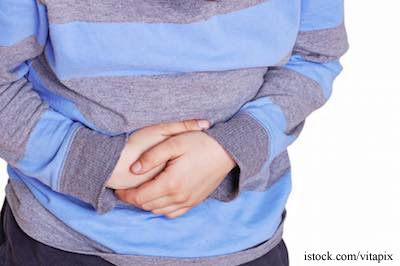Parents are responsible for their children’s health. This can sometimes feel overwhelming, but with a little knowledge you can make sure your child gets the best possible care if he gets sick. That’s why you need to know the signs of an E. coli infection.
 Food poisoning is quite common in the United States and around the world. One out of every six people in this country will contract food poisoning this year. So parents need to know the signs of an E. coli infection.
Food poisoning is quite common in the United States and around the world. One out of every six people in this country will contract food poisoning this year. So parents need to know the signs of an E. coli infection.
Most people think of these infections as the “24 hour flu” and most get better without medical treatment. But thousands get sick enough to be hospitalized, and thousands die from their infections. There are several different kinds of bacteria that cause these illnesses: Salmonella, Campylobacter, Listeria monocytogenes, and E. coli.
E. coli O157:H7 and other strains of E. coli can cause serious illness, especially in children. These bacteria live in the intestinal tracts of animals and people. Children can contract an E. coli infection by drinking contaminated water, swallowing polluted pool or lake water, eating foods contaminated with the bacteria, by touching an animal that is shedding the bacteria, and sometimes through person to person contact.
Unfortunately, there is no one particular food that carries these pathogenic bacteria; E. coli can be anywhere. In the past few years, E. coli outbreaks have been linked to ground beef, mechanically tenderized steak, lettuce, spinach, raw cookie dough, frozen pizza, raw milk, raw sprouts, and apples. These foods can be contaminated by animals, dirty irrigation water, improper handling, improper cooking, and cross-contamiantion.
These are the signs of an E. coli infection: it usually begins with abdominal cramps and diarrhea. The diarrhea will then become bloody and watery. Any diarrheal illness can be serious in a young child, since dehydration can occur easily in small bodies; any child with diarrhea should be taken to the doctor.
The bacteria multiply rapidly in the child’s intestine and cause inflammation and damage to the intestinal wall, causing bleeding. But the bacteria can then get into the bloodstream and produce toxins called Shiga toxins. Those toxins head for the kidneys and cause a potentially deadly complication, especially in children under the age of five, called hemolytic uremic syndrome (HUS). The toxins destroy red blood cells, which block tubes in the kidneys, causing kidney failure. Children with HUS can have seizures, strokes, heart attacks, and die.
If your child develops bloody diarrhea, see your doctor as soon as possible and ask for an E. coli test. A sample of feces will be tested for the bacteria. If it is positive, the doctor will know how to treat your child. The doctor will send the sample to public health officials for confirmation, since E. coli infections are a reportable condition, and others may be sick with the same bacterial strain. Genetic testing called pulsed field gel electrophoresis (PFGE) can determine the DNA fingerprint of the bacteria that made your child sick. Armed with this knowledge, public health officials can help stop an outbreak, and pinpoint the bacteria’s source, which is critical if a lawsuit is filed.
E. coli infections need specialized treatment. Antibiotics should never be given to a child with an E. coli infection, because that can increase the risk of HUS development.
If your child develops the symptoms of hemolytic uremic syndrome, immediate medical attention is necessary. Those symptoms include fatigue, paleness, fainting, weakness, lethargy, bruising, decreased urine output, blood in the urine, and swelling of the limbs. Hospitalization is usually necessary at this point. The child will be hydrated and may need plasma treatment, anti platelet agents, and steroids. Early treatment is the best course of action for recovery.
The whole point is not to panic or obsess about your child’s health; just be aware. Now that you know the signs of an E. coli infection, you can best protect your child if she does get sick.
You can also help by making sure your child does not consume raw milk or raw milk products, unpasteurized cider, raw sprouts, or undercooked ground beef. Always wash produce before serving it, and pay attention to recalls and outbreak warnings. Observe food safety rules in the kitchen, guard against cross-contamination around raw meats, and refrigerate perishable foods immediately. Wash your hands before and during meal preparation and after using the bathroom or changing diapers. Keep your family healthy and well with these rules.




